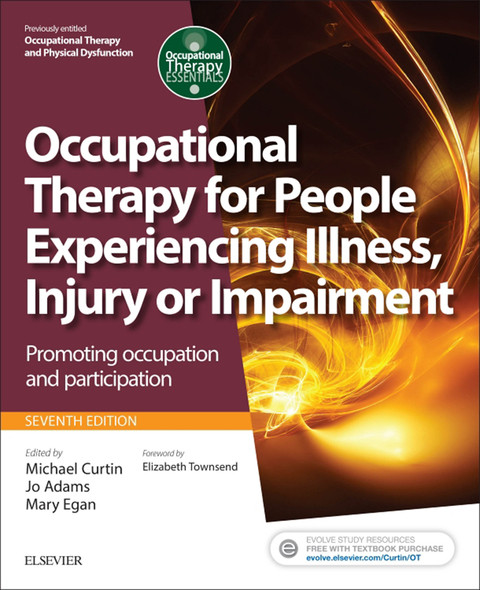

Most ebook files are in PDF format, so you can easily read them using various software such as Foxit Reader or directly on the Google Chrome browser.
Some ebook files are released by publishers in other formats such as .awz, .mobi, .epub, .fb2, etc. You may need to install specific software to read these formats on mobile/PC, such as Calibre.
Please read the tutorial at this link: https://ebookbell.com/faq
We offer FREE conversion to the popular formats you request; however, this may take some time. Therefore, right after payment, please email us, and we will try to provide the service as quickly as possible.
For some exceptional file formats or broken links (if any), please refrain from opening any disputes. Instead, email us first, and we will try to assist within a maximum of 6 hours.
EbookBell Team

0.0
0 reviewsThe new title, Occupational Therapy for People Experiencing Illness, Injury or Impairment, reflects the knowledge, attitudes and skills that underpin the practice of promoting occupation and participation. It showcases how occupational therapists work with people – not medical conditions and diagnoses – as individuals, groups, communities, and populations.
The new edition now has additional chapters on the assessment and intervention stages of the professional reasoning process to assist development of enabling skills and strategies. It also includes many more practice stories throughout to provide authentic examples to illustrate the application of theory to practice. Learning is further reinforced via access to a new online resource – Evolve Resources – which includes MCQs, reflective questions and three bonus interactive practice stories with accompanying reflective videos. These are all signposted within the textbook.
Now compromising seven sections, which follow the professional reasoning format of the Canadian Practice Process Framework (CPPF), the new edition first tracks the evolution of occupational therapy in the context of health care. It then examines the foundational biomedical and social sciences, in addition to occupational science, before going on to the areas of assessment; writing occupation-focused goals; enabling skills and strategies which include advocacy and lobbying, public health, and community-based rehabilitation. The book ends with a chapter on developing effective reflection skills to enable
…